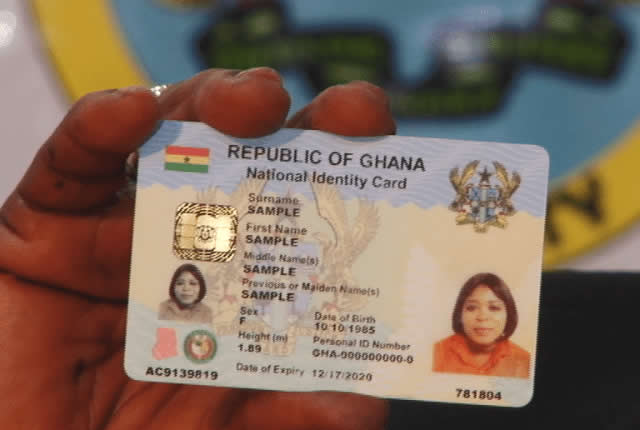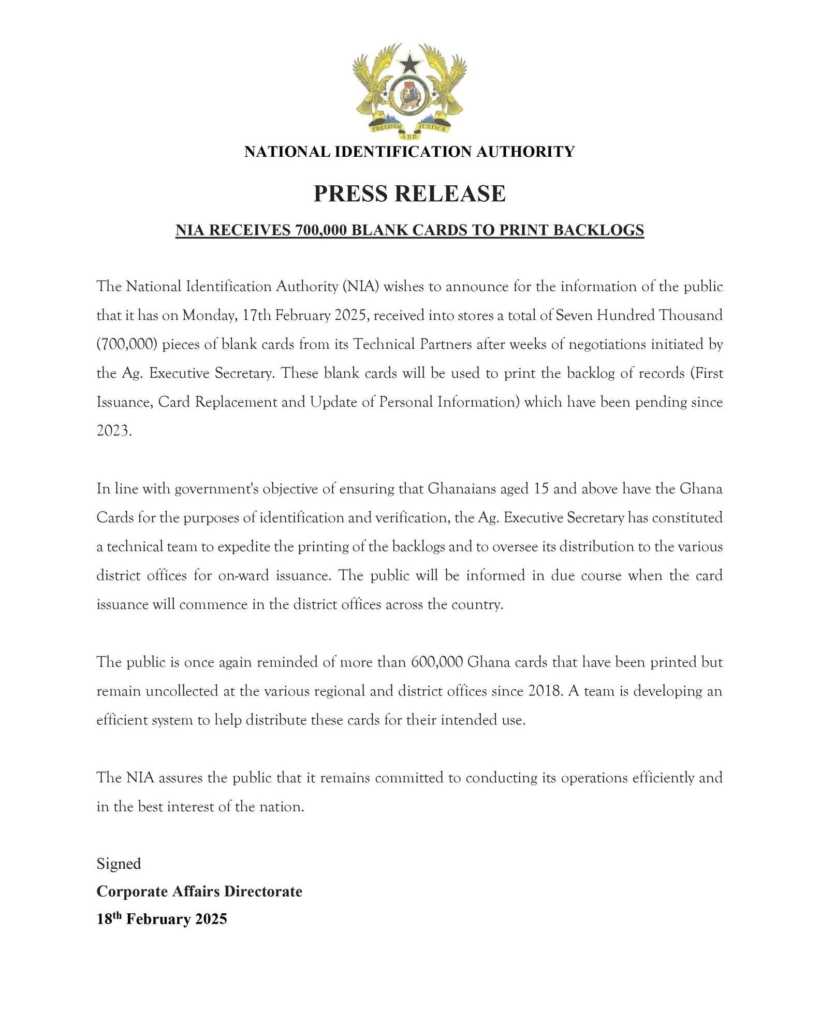
About 600,000 Ghana Cards, already printed and ready for collection, remain unclaimed across various regional and district offices in Ghana, with some dating back to 2018.
- About 600,000 unclaimed Ghana Cards remain at various offices since 2018
- NIA has received 700,000 blank Ghana Cards to address the backlog
- Newly acquired blank cards will be used for pending applications and updates
This issue is particularly pressing, especially considering that the National Identification Authority (NIA) has received 700,000 blank Ghana Cards to address the backlog of unprinted cards from 2023.
Efforts to clear pending applications
In a press release dated 18 February 2025, the NIA confirmed that the newly acquired blank cards will be used to process pending applications, including first-time issuances, card replacements, and updates to personal information.
DON’T MISS THIS: Top 10 African countries with the highest-earning migrant population in the US

To speed up the printing and distribution process, the Acting Executive Secretary has set up a technical team. The team will ensure that the printed cards are delivered to district offices for collection by applicants.
NIA urges public to collect unclaimed cards
While the new supply is expected to reduce the backlog, the NIA is calling on the public to collect their Ghana Cards, which have been sitting unclaimed for years.
“We are working on a system to distribute the unclaimed cards efficiently,” the NIA stated, though details of the distribution strategy remain undisclosed.
DON’T MISS THIS: Ghana to become Africa’s first blockchain-powered government
The Ghana Card is a vital national identification document, mandatory for all Ghanaians aged 15 and above. It is required for essential services such as banking, healthcare, and voter registration.
The NIA, established under the National Identification Authority Act, 2006 (Act 707), is responsible for collecting personal data on Ghanaians both at home and abroad, as well as permanently resident foreign nationals. The authority ensures the accuracy, confidentiality, and security of personal data and makes this information accessible to authorized institutions.
As Ghana continues its digital transformation, ensuring that citizens collect their Ghana Cards will be crucial in facilitating seamless access to national services.












